|Brussels, Belgium
|15-16 December 2022
|https://bit.ly/3Cuwyum
21st ESTIV International Congress
|Sitges, Spain
|24 November 2022
|https://estiv.org/congress2022/
The next step for a real European Health Union
|Brussels, Belgium
|27 October 2022
|https://bit.ly/3SWRQb6
MicrobiotaMi 2022
|Milano, Italy and Online
|5-7 December 2022
|https://microbiotami.com/
Solutions in Chemistry 2022
|Sveti Martin na Muri, Croatia
|8-11 November, 2022
|https://solutionsinchemistry.hkd.hr/
XVI Encontro de Química dos Alimentos (EQA)
|Castelo Branco, Portugal
|23-26 October 2022
|https://xvieqa.events.chemistry.pt/
Calls for funding and awards
EuChemS Awards
- EuChemS Gold Medal
Deadline: 19 December - EuChemS Lecture Award
Deadline: 19 December - EuChemS Awards for Service
Deadline: 19 December - EuChemS Historical Landmarks Award
Deadline: 19 December
- EuChemS Division of Organic Chemistry Award for Research
Deadline: 31 December - EuChemS Division of Organic Chemistry Award for Service
Deadline: 31 December
Marie Skłodowska-Curie Actions
- MSCA Doctoral Networks 2022 | Marie Skłodowska-Curie Actions (europa.eu)
Deadline: 15 November
ERC Calls
The following European Research Council (ERC) call for funding are open:
- ERC Starting grants
Deadline: 25 October
- ERC Synergy Grants
Deadline: 8 November
Horizon Europe Calls
- Better, more portable and quicker analysis and detection for customs
Deadline: 23 November 2022 - Building a community of scientific research and enabling a network of PhD (academia teaming with industry)
14 December 2022 - Efficient and circular artificial photosynthesis
10 January 2023
IUPAC Call
- Distinguished Women in Chemistry or Chemical Engineering Awards
Deadline: 1 November
European Food Safety Authority (EFSA) public consultations
A number of consultations put forward by the European Food Safety Authority (EFSA) are currently open.
- Assessment Report on the active substance Pythium oligandrum strain B301
Deadline: 13 November 2022 - Assessments following the clock stop on endocrine disruption properties for the active substance Triclopyr in the context of the pesticides peer review
Deadline: 15 November 2022 - Draft Scientific Opinion on the human health risks related to the presence of N-nitrosamines (N-NAs) in food
Deadline: 22 November 2022
You can take a look at it all here.
EuChemS is an official accredited stakeholder of the European Food Safety Authority (EFSA).
European Chemicals Agency (ECHA) public consultations
A number of consultations put forward by the European Chemicals Agency (ECHA) are currently open.
- Testing proposals
Deadline: 11 November 2022
In addition, a range of Restriction proposals, Calls for Comments and Evidence and Harmonised classification and labelling consultations are also available – we invite you to take a look at them here.
European Commission Public Consultations and Roadmaps
European Commission Public Consultations and Roadmaps
A number of consultations and roadmaps put forward by the European Commission are currently open:
- Soil health protecting sustainably managing and restoring EU soils
Public consultation
Deadline: 24 October 2022 - European Critical Raw Materials Act
Public Consultation
Deadline: 25 November 2022 - Revision of EU rules on food contact materials
Public Consultation
Deadline: 11 January 2023
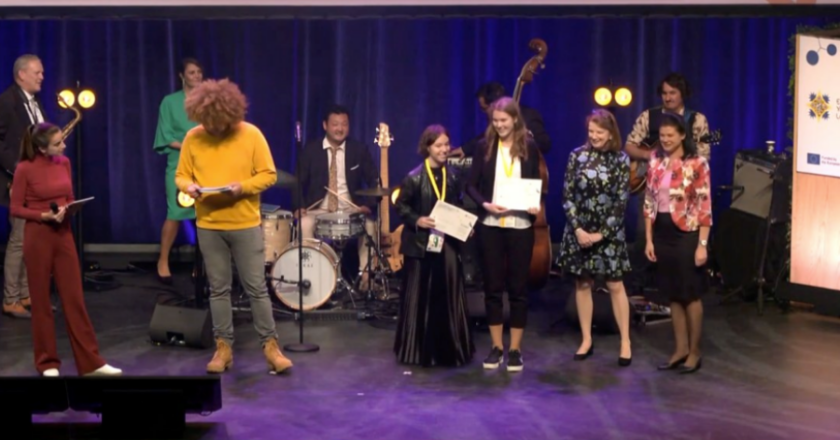
EUYCS EuChemS prize awarded for making chemistry more accessible
Ema Bojnec and Daša Žuman received the EuChemS prize for the best chemistry project at the 2022 EU Contest for Young Scientists (EUCYS), organised by the European Commission Directorate General for Research and Innovation, and funded by Horizon Europe.
EuChemS offered the award for the best chemistry entry as a “specially donated prize” in the competition, which aims to highlight and reward the scientific achievements of young European students aged between 14 and 20. The recipients of the EuChemS prize, Ema Bojnec and and Daša Žuman from Slovenia, have worked on a linear structure notation for compounds for visually impaired in chemistry.
EuChemS supports the best chemistry contributions at the EUYCS with its specially donated prize since 2014 – we invite you to learn about past awardees and their projects here. You can also watch this year’s award ceremony here, to see all the successful projects of the invited young scientists.
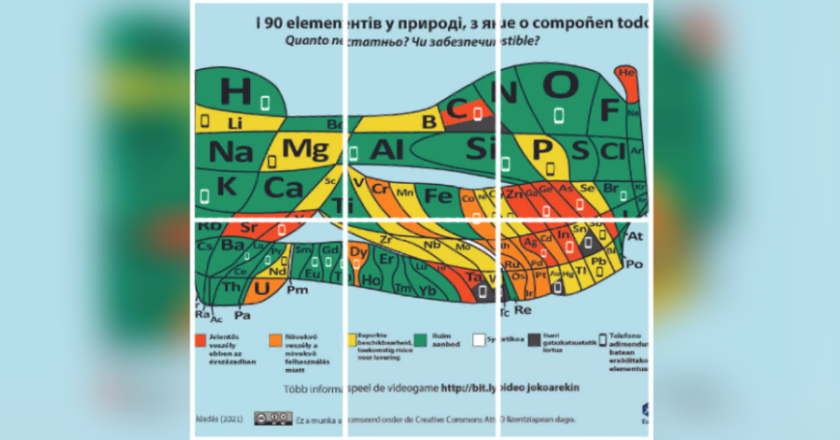
New translations of the EuChemS Periodic Table
Six additional community translations of the 2021 2nd version of the EuChemS Periodic Table were approved and published online recently. With the addition of Basque, Dutch, Galician, Hungarian, Italian and Ukrainian translations, the document can be accessed in a total of 14 languages.
The EuChemS periodic table aims to emphasize element scarcity, and the importance of sustainability in resource use through unique visual means: by demonstrating the available amount of each element on a logarithmic scale, and in addition, using colour coding to show how sustainable the societal uses of them are.
As EuChemS considers this as a critical societal message, we find it important to increase the visibility and accessibility of it beyond language barriers. We rely on our community of chemists, educators, students and others to assist in getting this document to as many people as possible in their native languages. While the translations are reviewed and approved by experts from EuChemS network, the bulk of the translation work is done by contributors from various backgrounds and countries. Therefore, we would like to express our gratitude to those who contributed with these translations, as well as invite all to submit a translation in their own languages.
You can see the new translations, and learn more about the EuChemS periodic table here.
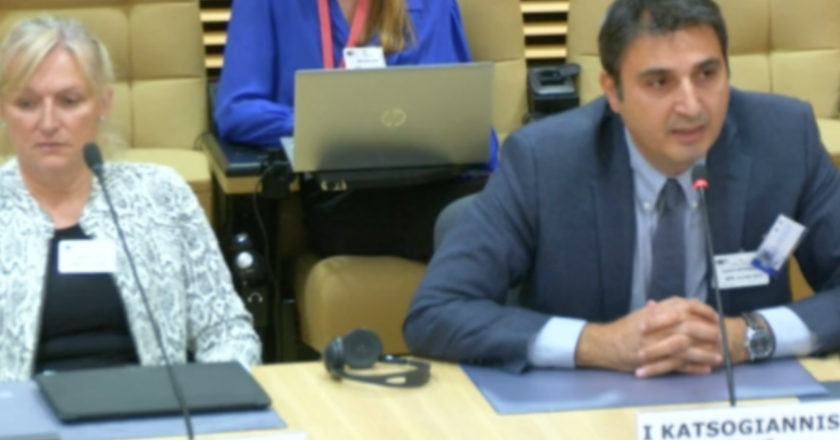
EuChemS at the 3rd Zero Pollution Stakeholder Platform
The European Chemical Society was represented by Secretary General Nineta Hrastelj and Executive Board Member Ioannis Katsoyiannis at the 3rd meeting of the Zero Pollution Stakeholder Platform, held in Brussels on 11 October, at the European Commission. The platform, set up jointly by the Commission and the Committee of the Regions, aims to promote the Commission’s zero pollution agenda, and to allow stakeholders to influence its key policy aspects. The key topics of the 3rd meeting – co-chaired by Veronica Manfredi, Director of DG Environment, Markku Markkula, Member of the Committee of the Regions and Patrick Child, Deputy Director-General of DG Environment – were, urban and regional zero pollution actions, promoting the Zero Pollution Performance Scoreboard and phasing out pollution from pharmaceuticals in cities and regions.
EuChemS was invited to be a part of the platform, consisting of stakeholders from academia, industry, health, agriculture and many more, in March 2022, and also participated in the 2nd meeting on 25 April.
During the most recent meeting, Ioannis Katsoyiannis contributed on behalf of EuChemS, with regards to the topic of regulation of pharmaceuticals in waters and wastewaters of Europe. He highlighted the importance of the metabolites of the organic pollutants existing in waters. In addition, he emphasized the capacity and willingness of EuChemS’ network of European chemists to contribute to the discussion and solutions on the topic.
You can learn more about the platform – which is one of EuchemS’s many policy advisory activities – here, and watch the recording of the 11 October meeting here.
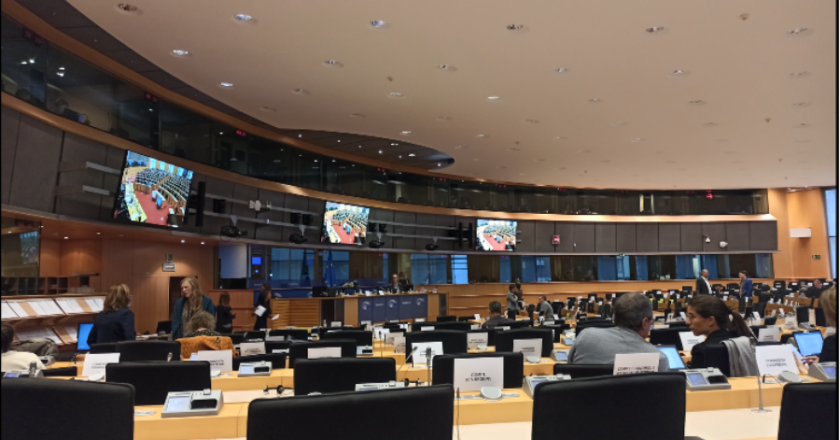
COP27 and Methane Emissions in focus for Committees
On 3 October, the members of the ENVI Committee adopted a resolution, calling G20 countries to adopt more ambitious climate goals ahead the UN COP27 Climate Conference, to be held in Egypt next month. The resolution was adopted in the context of the worrisome results announced on COP26 in Glasgow, which show that current targets will not be enough to achieve the goals set out in the Paris Agreement. In addition, Russia’s invasion of Ukraine influences the resolution as well, as Europe’s energy independence from Russia also calls for urgent emphasis on alternative energy sources.
On 10 October the members of ENVI and ITRE also discussed the joint draft report on the proposed regulation for the reduction of methane emissions in the energy sector. In September 2021 the EU and the U.S. announced the Global Methane Pledge: a political commitment to reduce global methane emissions across all methane-emitting sectors by 30% by 2030. The proposed changes include improvement of detection and monitoring techniques, means to utilize leaks otherwise lost as an energy source, streamlining industrial methodology, and increasing transparency to improve market-stakeholder relations.
The Committees noted that an estimated 180 million cubic meters of gas could be earned if all methane leaks were eliminated, as there is currently no legislation requiring methane emitting companies to repair leaks therefore hey may not be aware of them. An amendment to the proposed regulation to impose these obligations is expected to improve health, environment, and benefit industry. In addition, stricter monitoring requirements could incentivise innovation.
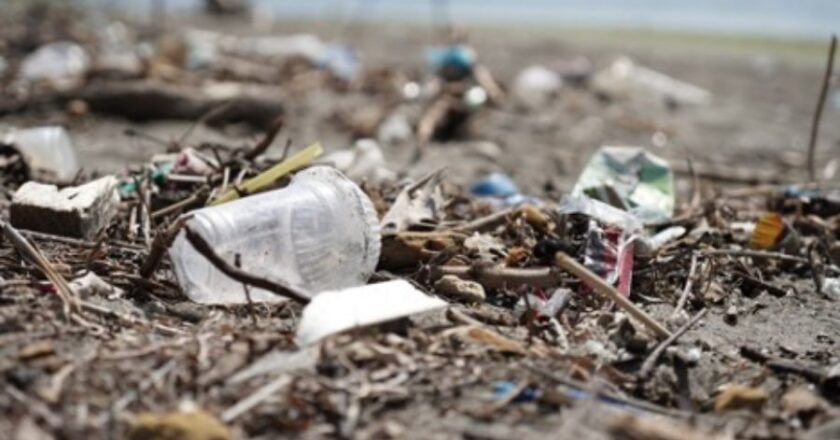
Stricter limits to be set on POPs
On the 4 October plenaries, the Parliament adopted a notion setting stricter limits on Persistent Organic Pollutants (POPs). The ENVI committee adopted the draft resolution back in April, following the Council’s call for restricting POPs.
The rules will be adopted by the European Council formally in the near future, after which they will be published in the EU Official Journal. They will apply in six months following the publication.
The new rules recently backed by the parliament state that products which contain POPs above a certain threshold are deemed to be harmful for human life and environment, therefore they will have to be destroyed instead of being recycled. The limit for PBDE brominated flame retardants is being reduced in accordance to the new rules, to 200 mg/kg, (albeit it may change depending on years after entry into force), while for dioxins and furans, the threshold will be limited to 5 μg/kg.
The new regulation will be in line with international obligations, such as the Stockholm Convention. Its supporters say that it will assist in achieving a truly circular economy, while protecting our health and environment.
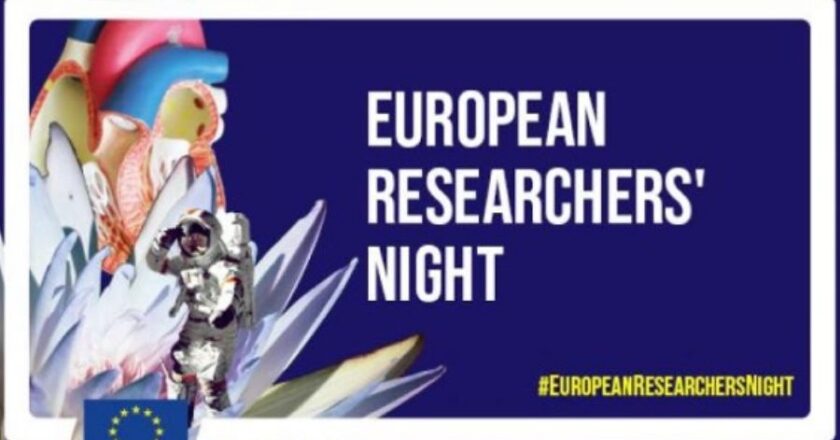
European Researcher’s Night promotes science
On the night of 30 September, the European Researchers Night took place. The Europe-wide science communication and promotion event is primarily aimed at the younger generation – meaning that in all Horizon Europe associated countries, fun, family-oriented and engaging educational activities were held by scientific organisations. The Researcher’s Night, taking place yearly, on the last Friday of each September, is sponsored by the Marie Skłodowska-Curie actions.
As 2022 is designated as the European Year of Youth, the launch of the “Researchers at School” initiative was also announced, and implemented in many of the programmes of the Researcher’s Night. This new initiative from the Commission aims to further the same goals as the Researcher’s Night has all year round – popularising science amongst young pupils through direct interaction with researchers. The project is set to involve 2400 primary and secondary schools over two years to hold exchanges on the topic of science, technology, arts and mathematics (STEAM).
These events also emphasize tangible scientific goals, such as how science can help in combating societal challenges, as well as achieving SDGs and an overall healthier European and global environment for the next generation. The researchers at school initiative also aims to reach out to researchers who are interested in getting involved.
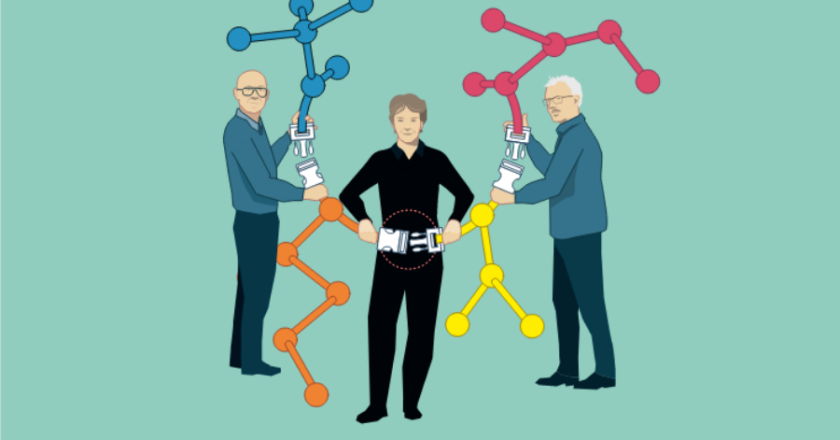
Chemistry Nobel Prize awarded for “Click Chemistry”
On 5 October, the recipients of the 2022 Nobel Prize for Chemistry were announced: Carolyn R. Bertozzi and K. Barry Sharpless from the United States as well as Morten Meldal from Denmark received the honour jointly.
The prestigious scientific award was given in recognition of discovering the foundations for a simple method of connecting molecule blocks together relying on the simplicity of connecting azides with alkynes. This is an achievement on a functional field of chemistry, dubbed “click chemistry”.
This is considered as a significant achievement, as it provides a potential for the creation of complex, high fidelity molecular structures without the often cumbersome need for detailed planning and optimised conditions. According to the Swedish Academy of Sciences, “even if click chemistry cannot provide exact copies of natural molecules, it will be possible to find molecules that fulfil the same functions. Combining simple chemical building blocks makes it possible to create an almost endless variety of molecules: (…) click chemistry could generate pharmaceuticals that were as fit for purpose as those found in nature, and which could be produced on an industrial scale.”
You can learn more about the technical process of “click chemistry” here, and find additional details on the Nobel Prize recipients and ceremonies here.
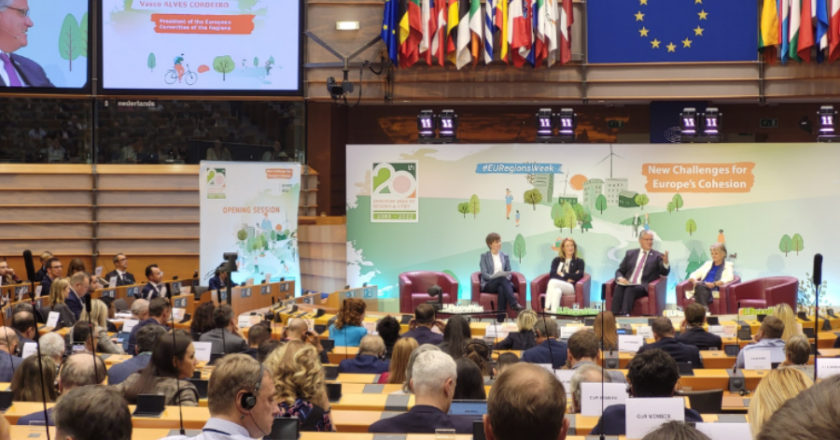
European Cohesion highlighted at EU Regions week
The milestone 20th edition of the European Regions Week, an annual, large scale event focused on the cohesion of, and cooperation between the regions of Europe, was held between 10 and 13 of October.
The event, comprising of more than 260 workshops, sessions, and participatory labs in total, hosted participants and speakers from various backgrounds: regional political and administrative representatives, academics, and experts from industry. The sessions were similarly versatile. The key topics were ranging from digital and green transition to youth empowerment with subtopics concerning a variety of specific fields, including research, innovation and regional cohesion in knowledge valorisation as well. These events were held in numerous European countries, and while a fair share of them were accessible in person, all of them could be viewed online. Online interaction and social media exposure was emphasized to promote participation all across Europe.
The opening ceremony, attended by EuChemS, was held in the European Parliament in Brussels. High profile speakers addressed the participants: amongst others, the President of the European Parliament Roberta Metsola, emphasized the role of young elected representatives, as well as President of the European Committee of the Regions Vasco Alves Cordeiro and Commissioner for Cohesion and Reforms Elisa Ferreira, discussed regional cohesion, focusing on the highlights of the 8th Cohesion report. In addition, many regional representatives also addressed the achievements and challenges of their respective regions.
The session “Zero Pollution: a driver for sustainability” of the EU Regions Week have was connected to the “Zero Pollution Stakeholder Platform”. EuChemS is an invited stakeholder of this platform, which held its 3rd meeting on the same day.
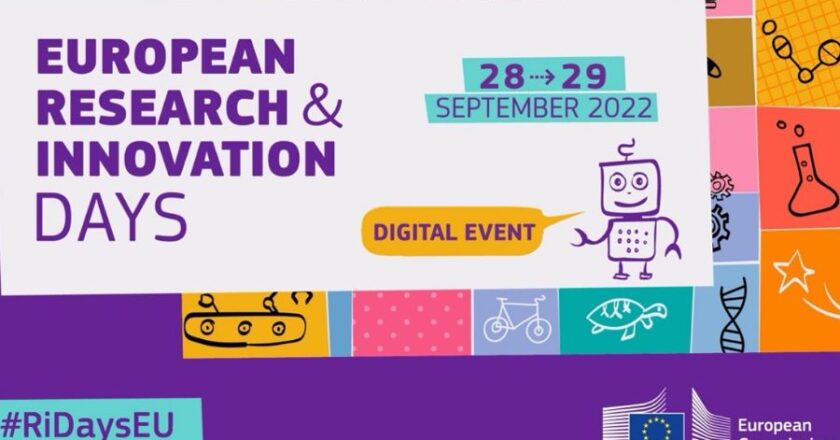
EU Research and Innovation Days took place online
The 4th edition of the European Research and Innovation days (RIDays) was held on 28-29 September, organised by the European Commission, which considers it as its flagship Research and Innovation event. The overarching topic of the RiDays was the EU Innovation agenda, and the role of youth in R&I – a theme connected to 2022 being the European Year of Youth.
This year’s edition was held as a digital only event, consisting of a wide range of workshops and panel discussions streamed online. While this limited participant interaction to a degree, the organisers argued that digital events can achieve a wider reach, and attempted to ensure that the opportunities for interaction are provided by the online platform.
The numerous discussions were revolving aroundthe central role of education and higher education, gender balance in STEM and the importance science communication and science policy – many of which are also EuChemS priorities. During the event, the Coalition for Advancing Research Assessment (COARA) was announced. The coalition aims to reform research assessment on qualitative and impact-based grounds. R&I stakeholder organisations were invited to sign the COARA agreement.
During the closing ceremony, Commissioner for Innovation, Research, Culture, Education and Youth Mariya Gabriel emphasized key drivers in achieving the European Commission’s priorities. According to the Commissioner, RI have an enormous potential to address Global challenges that can only be realized by coordination, cooperation and impact-driven research policy.

